His late father was Govan Mbeki and his brother is former president Thabo Mbeki, both leading intellectuals and important figures in the formation and growth of the ANC. However, businessman and independent political analyst Moeletsi Mbeki is adamant that the ANC has committed what he calls five “mortal sins” during its 30 years in power.
In a wide-ranging interview to reflect on the three decades of democracy, and challenges and solutions for South Africa, Mbeki listed the five mortal sins as:
- Adopting Broad-Based Black Economic Empowerment (BBBEE) as a government policy;
- Growing the black middle class through affirmative action as an employment policy in the public service and state;
- Retaining inherited state-owned enterprises instead of privatising them;
- Foreign policy failures in Zimbabwe and Mozambique; and
- Removing the military’s control of South Africa’s land borders.
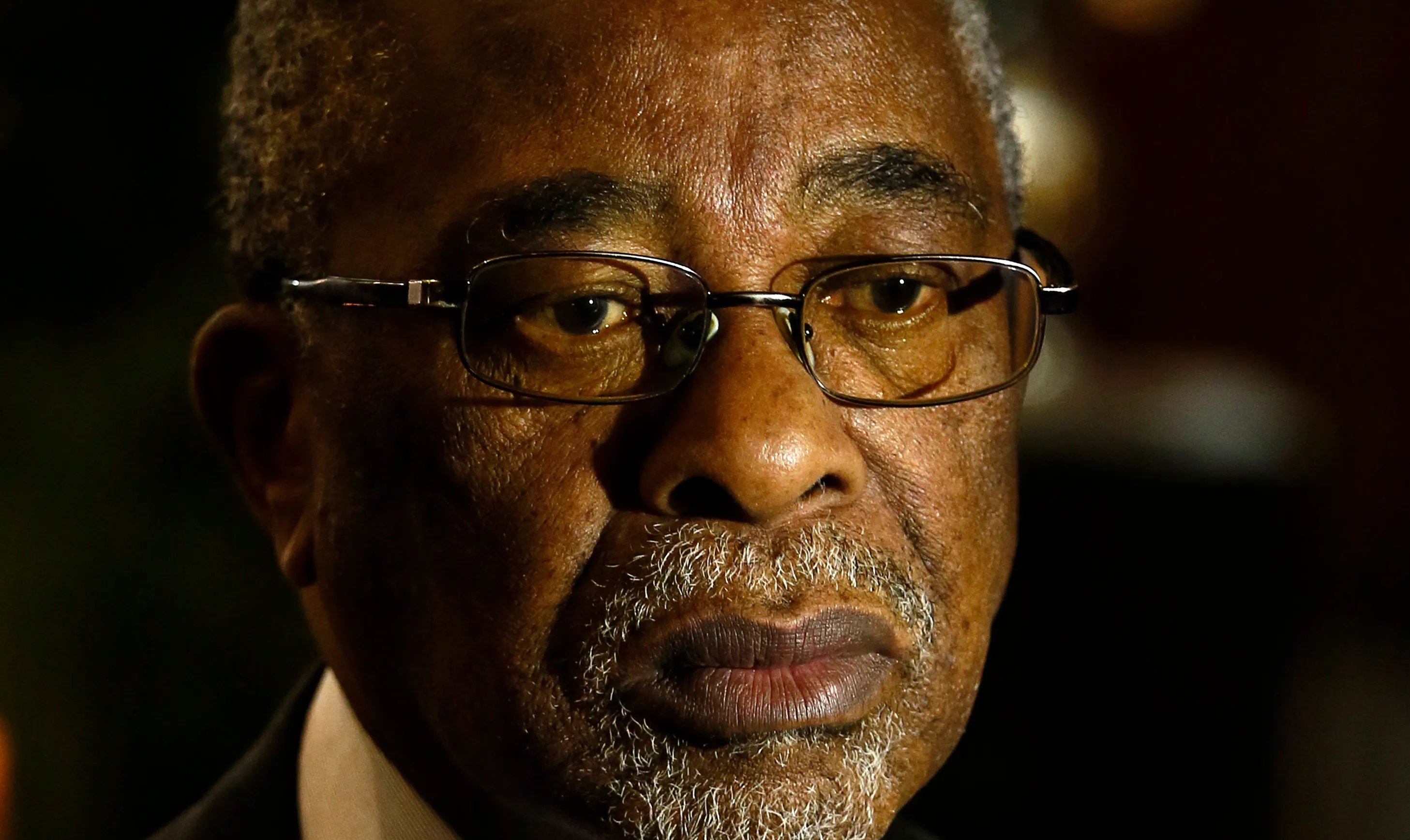 Businessman and independent political analyst Moeletsi Mbeki. (Photo: Gallo Images / Phill Magakoe)
Businessman and independent political analyst Moeletsi Mbeki. (Photo: Gallo Images / Phill Magakoe)
MORTAL SIN 1: BBBEE as a government policy
Some of the fallacious policies implemented by the ANC, Mbeki maintains, include BBBEE and affirmative action. These, he says, have broadened the black middle class, but have alienated all the other races and led to stagnation in the economy.
“The ANC adopted the BBBEE policies that were started by business to ingratiate itself with the new ANC rulers by giving money and shares to individuals like Dr Nthato Motlana, Cyril Ramaphosa, Patrice Motsepe, Saki Macozoma, Tokyo Sexwale and other individuals connected to the ANC.
“It also created a black middle class using affirmative action policies by creating jobs and perks in the state, and offering early severance packages to whites who were in the public sector. Those who took up those jobs did not have the capacity or skills to run the departments that they were now in charge of.
“You see this when things are falling apart in the public sector. The classic example of this failure is in municipalities – many in this country are on the verge of collapse, and others have already collapsed and cannot deliver services,” said Mbeki.
“The ANC could still have created the black middle class by making available opportunities for them to be productive industrialists, farmers, artisans and small business owners who would build the country, and create wealth at the same time.
“The current forms of BBBEE and affirmative action, as implemented, confirms the stereotype that blacks are inferior to whites and they cannot create wealth on their own, and thus need white handouts to survive.”
MORTAL SIN 2: Affirmative action as an employment policy in the state
Although the private sector was correct to implement BBBEE, it has had a catastrophic effect as a state policy, Mbeki says.
“Business can do what it wants – within the law, of course – but it does not have the mandate of nation-building. As the ruling party, the ANC had the role of nation-building. Instead, it has adopted policies that benefitted only the African elite and alienated everyone else, including the poor blacks, the whites, coloureds and Indians.
“About 40% of coloured voters voted for the ANC in the first democratic elections and 19% of Indian voters voted for it. Now, less than 4% of coloured voters vote for the ANC because of BBBEE and other policies that discriminate against coloureds and Indians,” Mbeki said.
“The whites didn’t care because they have never voted for the ANC, but these other race groups felt betrayed because they were discriminated against during apartheid and now the new government policy also discriminated against them.
“The most discriminated-against group in South Africa is the coloured community. They were uprooted from their countries in Africa and Asia to come to South Africa to endure 200 years of slavery. Their living standards now have not improved much from the time when they were under slavery. BBBEE and affirmative action discriminate against them, and discriminate against Indians and whites.”
‘Parasitic’ black middle class
Mbeki believes that the ANC has crippled the country’s economic advancement by creating a black middle class that is dependent on the state and public service perks for its sustenance or prosperity.
“The ANC is a party that benefits the black middle class. It has done this by offering early severance packages to white civil servants at the dawn of democracy and replacing these whites with blacks.
“This black middle class don’t produce anything, yet they pay themselves huge salaries and other perks. The South African public servants are the highest paid in the world as a percentage of GDP.
“In South Africa, as of November 2023, there were 55,000 civil servants who were earning more than R1-million. This is the highest in the OECD [Organisation for Economic Cooperation and Development] countries. These are people who have a parasitic relationship with the state, wherein they get huge salaries for doing absolutely nothing, ” Mbeki said, adding that the state taxes the private sector and mineral companies to deliver that tax to public servants.
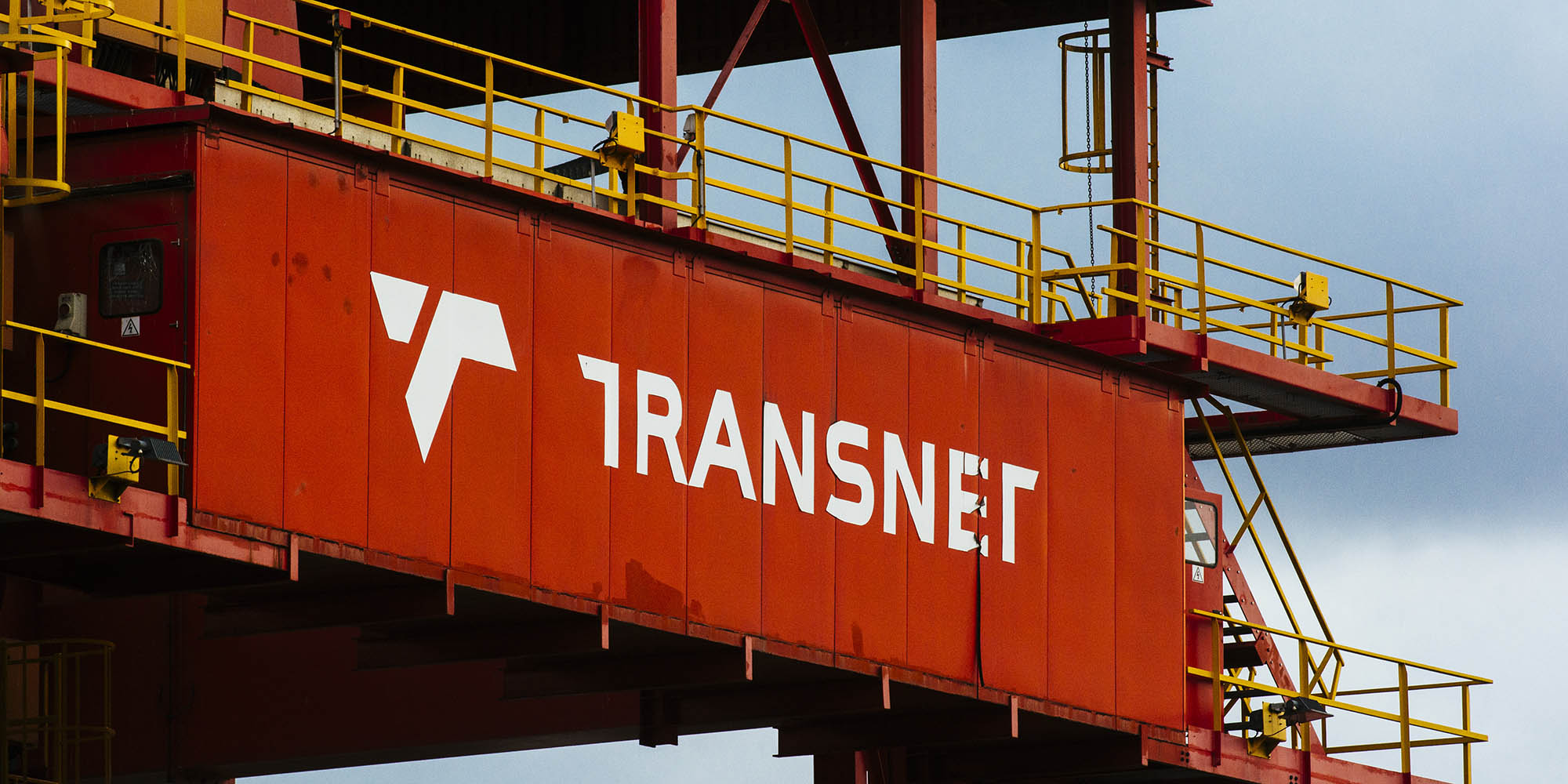 A Transnet logo at the Port of Durban in South Africa, 25 May 2018. (Photo: Waldo Swiegers / Bloomberg via Getty Images)
A Transnet logo at the Port of Durban in South Africa, 25 May 2018. (Photo: Waldo Swiegers / Bloomberg via Getty Images)
MORTAL SIN 3: Retaining SOEs instead of privatising them
Mbeki believes that, for all intents and purposes, the ANC was not ready to govern South Africa and its complex economy when it took over the country in 1994. And once it took over, it repeated a number of mistakes committed by post-independence countries in the north.
He maintains that the ANC should have privatised most of the more than 700 state-owned enterprises (SOEs) it inherited from the apartheid regime.
“Sasol was privatised just before the ANC took over. It is now a cutting-edge global energy company with factories, service stations and other facilities in South Africa, Canada, Gabon, Mozambique, Australia and 27 other countries. Telkom is also performing greatly after it was partly privatised.
“All vital state-owned companies that the ANC retained under the state are faltering. Eskom, Transnet, Prasa, Denel and the [SA] Post Office are the most scandalous failures.
“A banker by the name of Mark Barnes [CEO of the SA Post Office from 2014 to 2019] approached the government with a vision to turn around the SA Post Office and its subsidiary, Postbank.
“He said the Postbank would be at the centre of this turnaround strategy, and this was opposed by key government officials. He had to leave before the end of his term after failing to win the confidence of the political leaders. Now the Post Office is in a mess and 6,000 workers are facing retrenchments,” said Mbeki.
“When the ANC took over, it should have protected the local manufacturers against foreign competition before opening up the country. As a result of this deindustrialisation and other disastrous economic choices, there was a bloodbath of job losses in the manufacturing, mining, textiles, steel and other sectors of the economy.
“The unemployment rate and associated poverty is higher in townships and black areas in general. This is because the black population is 80% of the population of South Africa and is the great majority of blue-collar workers. ANC government policies that have led to the deindustrialisation of the economy have created unemployment among these blue-collar workers, who are mostly black and live in townships and in the former homelands.
“For the past 15 years, the South African economy has been growing backwards. This has been largely due to the underperformance of state-owned enterprises – Eskom and Transnet, both of which have been major obstacles to the growth of the economy. Eskom cannot provide an uninterrupted supply of energy to power the growth of the economy, and we cannot export our minerals and goods to international markets because of the problems overwhelming Transnet.”
Investment boycott
Mbeki says business has been holding back on investments – which would otherwise create jobs – as a result of inefficiencies.
“Business controls more than 75% of the South African economy. It creates most of the jobs in this country, and produces the food we eat and builds the houses we live in. Business is handicapped from growing by the underperformance of state enterprises.
“The state also taxes the profits of business, which business needs to reinvest in order to grow the economy. That tax is used by the government to promote private household consumption such as social grants, and government consumption.
“A significant part of household and government consumption comprises imported products like Scotch whisky products not made in South Africa,” he said.
White Monopoly Capital scaremongering
The term ‘White Monopoly Capital' became part of South Africa’s lexicon during the era of President Jacob Zuma and polarised people along racial lines. This White Monopoly Capital, said proponents of the so-called Radical Economic Transformation grouping, controlled the country’s politics and guzzled all its economic gains, leaving everyone poor.
Mbeki doesn’t believe that White Monopoly Capital exists. “This term was coined by a conservative British PR company, Bell Pottinger, that had worked closely with former British prime minister Margaret Thatcher.
“This name was coined by this PR company at the behest of the Guptas, who were stealing billions from South Africa and wanted to use the term to divert attention from their grand theft,” he said.
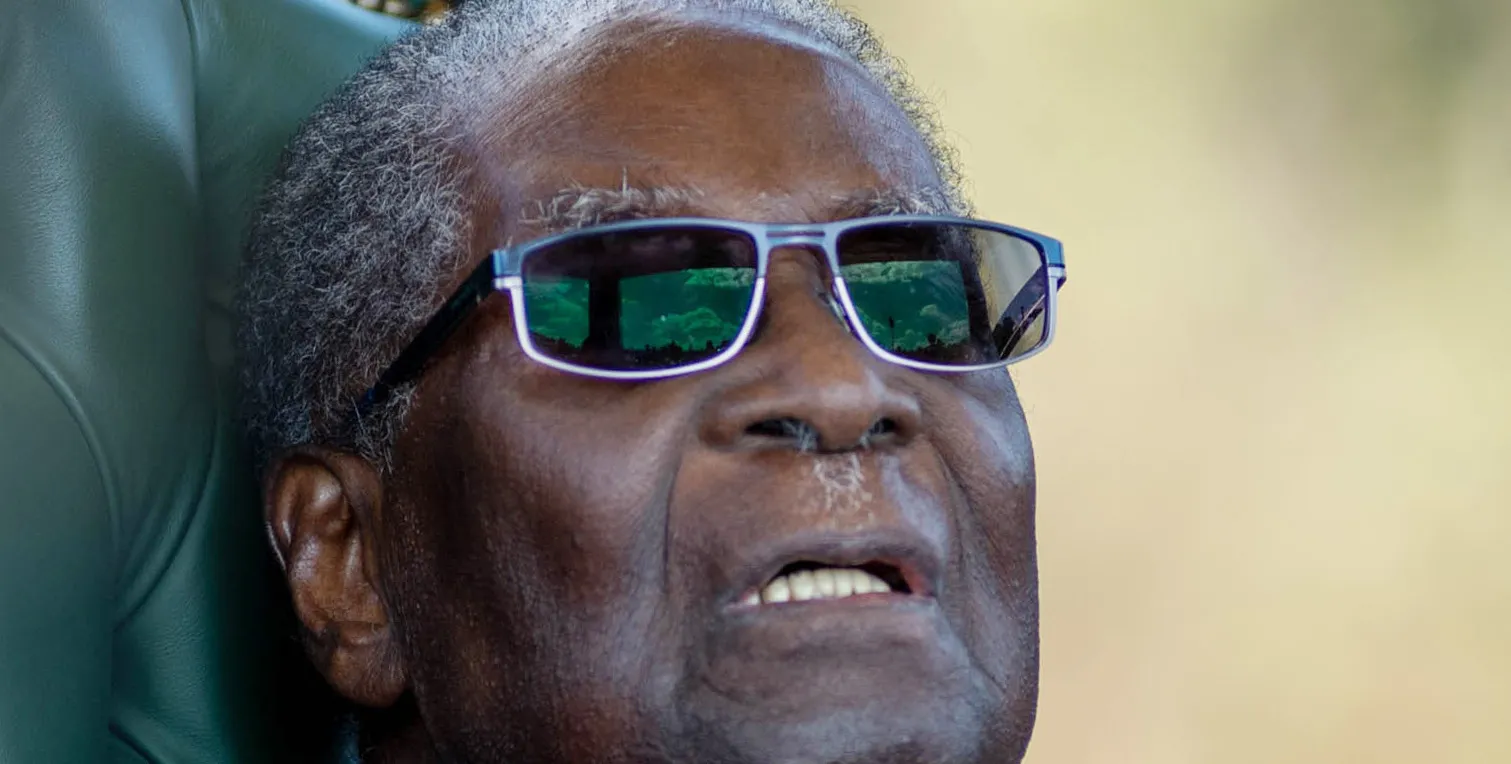 Former president of Zimbabwe Robert Mugabe, 29 July 2018. (Photo: EPA-EFE / YESHIEL PANCHIA)
Former president of Zimbabwe Robert Mugabe, 29 July 2018. (Photo: EPA-EFE / YESHIEL PANCHIA)
MORTAL SIN 4: Foreign policy failures in Mozambique and Zimbabwe
Mbeki maintains that the post-apartheid government has also made a number of foreign policy blunders, particularly in neighbouring Mozambique and Zimbabwe.
He says the ANC government has allowed heroin to be exported from Mozambique and transported into South Africa – sometimes for export to other countries in the West and elsewhere.
“The short answer is that I do not know what benefits the ANC gets from turning a blind eye to the heroin trade from Mozambique. When the Americans found out that some of this heroin was being re-exported to the US by smugglers, they sent an anti-narcotics team to South Africa to entrap the kingpin, which they did. He was deported to the US to face trial in New York and was sentenced to five years’ imprisonment,” he said.
“Poor people, especially black youngsters, have become addicted to this drug. The ANC government has turned a blind eye to this.”
Mbeki is also critical of South Africa’s “quiet diplomacy” in handling the Zimbabwean economic, political and social conflict that has polarised the region.
“Here, too, the South African government turned a blind eye as Zanu-PF was attacking dissidents and opposition leaders, unleashing the war veterans on farms and destroying the Zimbabwean economy. This resulted in the influx of poor and middle-class Zimbabweans into South Africa who could not survive in Zimbabwe as the economy was on its knees.
“So, the failures in foreign policy have had a telling effect on the SADC [Southern African Development Community] region and the African continent.”
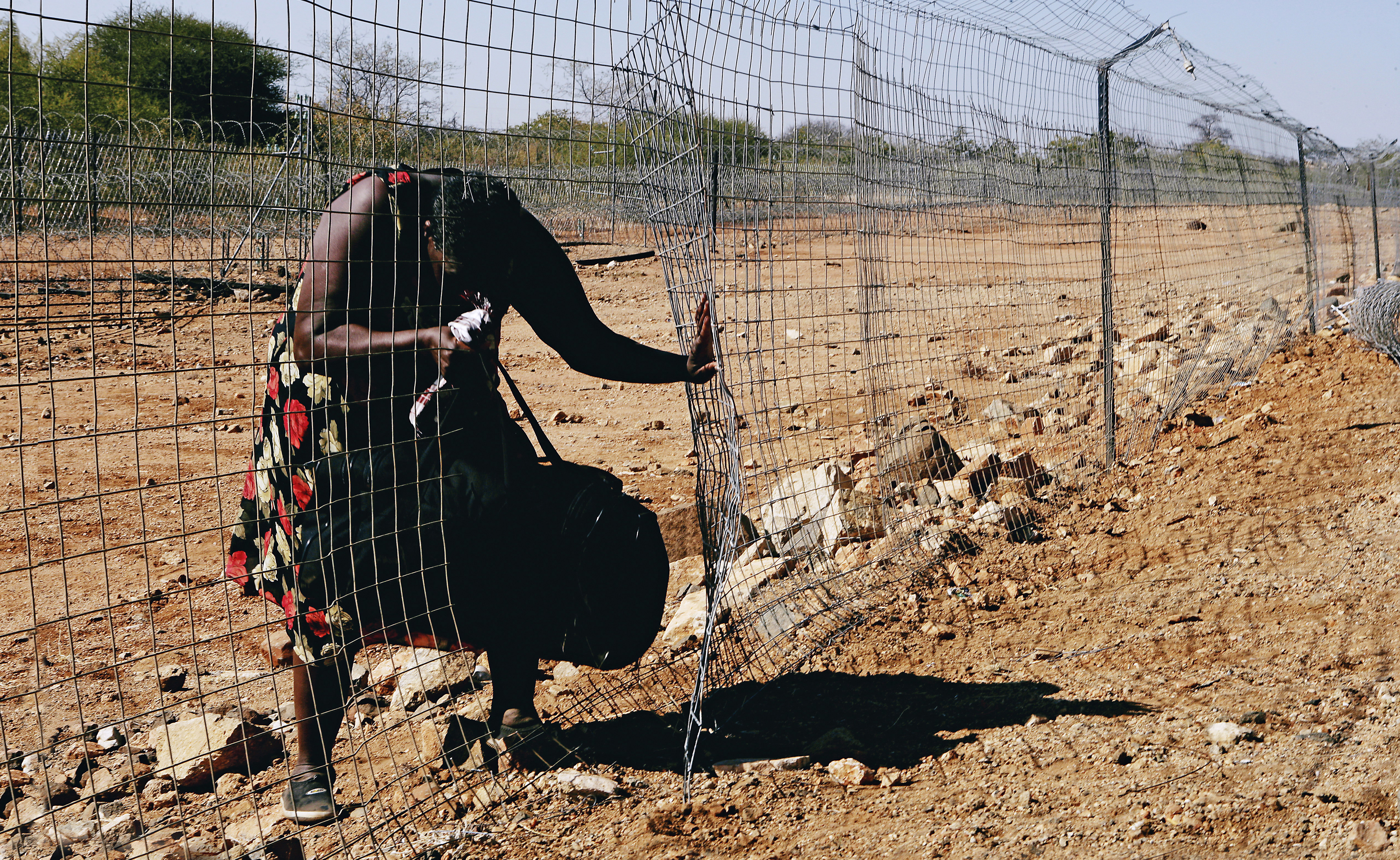 South Africa is the land of milk and honey for thousands of Zimbabweans streaming across the border. This elderly woman illegally enters South Africa near Beit Bridge border post, August 2007. (Photo: Gallo images / You and Huisgenoot Archives)
South Africa is the land of milk and honey for thousands of Zimbabweans streaming across the border. This elderly woman illegally enters South Africa near Beit Bridge border post, August 2007. (Photo: Gallo images / You and Huisgenoot Archives)
MORTAL SIN 5: Removing the army’s control of 4,862km of land border
Mbeki says the South African National Defence Force has “night-vision equipment, off-road vehicles and equipment, and its personnel are trained to work under any weather condition”, but these resources are wasted as the country’s land border with six countries is porous, with people and illicit goods and drugs going in and out.
“If you don’t have an army protecting your land border, you are playing into the hands of your enemies and other scavengers. South Africa doesn’t seem to comprehend the huge levels of poverty and instability facing our neighbouring states,” he said.
“People in those countries see South Africa as a very wealthy country; they see it as their salvation. Some people are prepared to walk from as far as Ethiopia and Somalia to get to South Africa.
“There are also national security issues, as the world is a dangerous place today. For instance, the enemies of South Africa could infiltrate agents through our porous border, commit whatever acts they want to commit and walk out without detection.
“In the days of dangerous enemies like the Rwanda-backed M23 rebels and Mozambique’s Cabo Delgado’s Islamist insurgents, every country has to know the identities of people entering and going out. Here, there are many people whom the government doesn’t know anything about because they entered the country illegally,” he said.
Is there redemption?
“Will the ANC repent and seek absolution for these mortal sins before the coming elections? I doubt it. The consequences are predictable – the loss of its majority, which to politicians is a death sentence worse than hell,” Mbeki said.
He added that this year’s election would mark the beginning of the end of the ANC, a fate that befell most of Africa’s former liberation movements around the 30-year mark after independence.
Most opinion polls predict that the ANC, which has had an uninterrupted hold on power, will lose its majority for the first time in the post-apartheid era.
Mbeki says South Africa’s woes will continue long beyond the election because none of the more than 300 political parties likely to participate in the elections is likely to bring any meaningful changes.
“Neither the ANC nor South Africa’s opposition parties offer solutions to the huge amount of poverty in the country, especially in the former homelands. They also have no solutions to the de-industrialisation of the country’s economy. None of the political parties has the policies or the capacity to solve the multitude of problems facing the country,” he said.
“The ANC already lost its national majority during the local government election of November 2021. I do not expect this will be different with the coming national and provincial elections. No one can predict what coalitions will be formed until we know the election results.
“After this election, what will happen is this: the ANC will lose its majority, but it will remain a dominant party and no other political party will be able to form a government without the ANC.
“So, the ANC will be the big brother of any coalition government that will be formed and the pathetic policies of the ANC will continue for the foreseeable future, until another party emerges that will take the place of the ANC, with new policies and strategies to deal with South Africa’s challenges,” he said.
“All liberation organisations in Africa have never survived long after liberation because they fail to fulfil the promises, and people start to turn against them. The regimes then start using repressive methods inherited from their former colonial masters and weaponise these against the people or the opposition.
“If democracy survives, people vote out these parties, and oftentimes democracies don’t survive and the military takes over,” Mbeki said, adding that the major turning point for the ANC came during the Marikana massacre, when 34 miner workers who were on a lengthy wage strike were killed in clashes with the police. DM
This story first appeared in our weekly Daily Maverick 168 newspaper, which is available countrywide for R29.





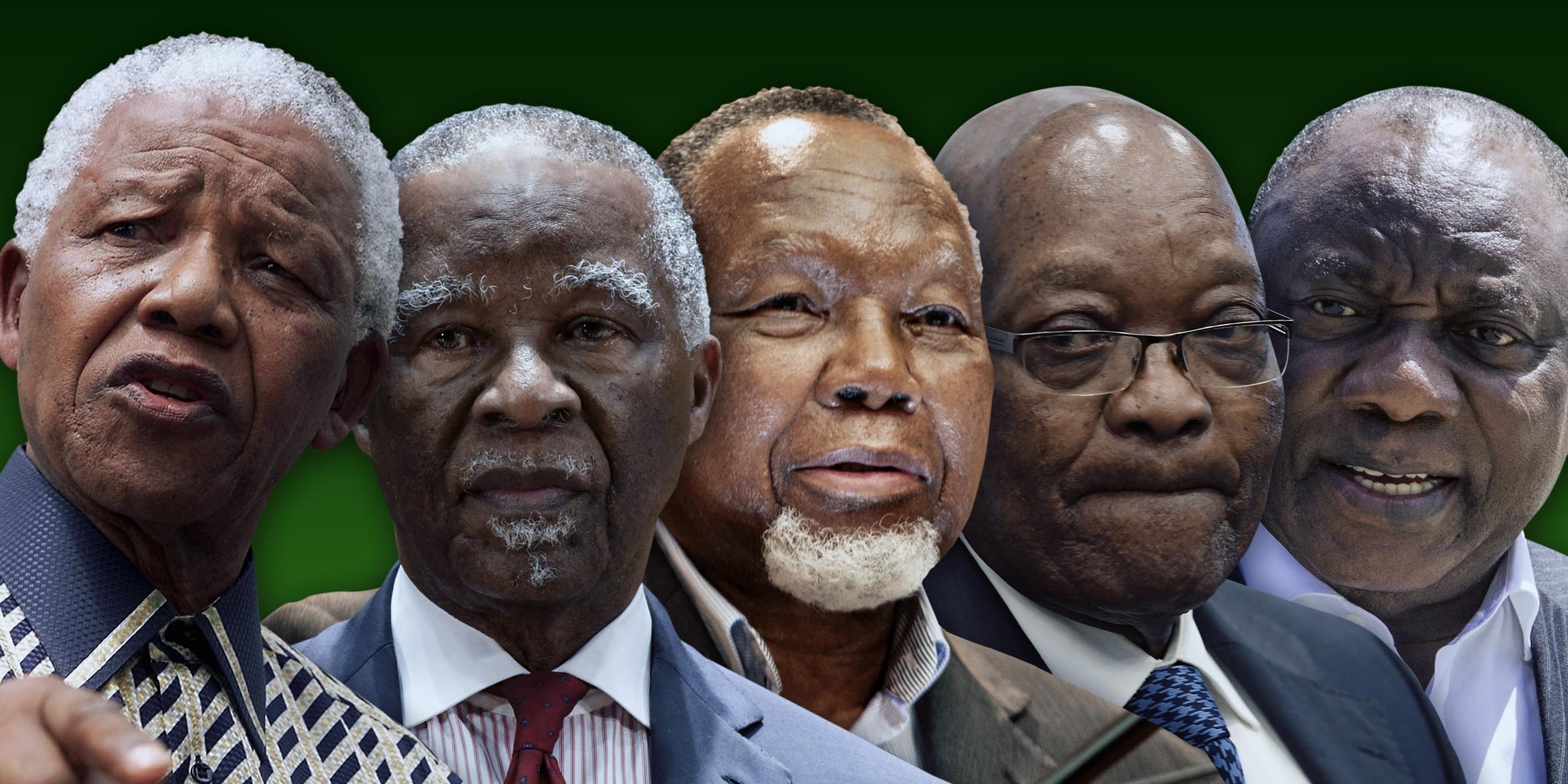 August 2007. South Africa is the land of milk and honey for thousands of Zimbabweans streaming across the border. This elderly woman illegally entering South Africa near Beit Bridge border post.(Photo:Gallo images\
You and Huisgenoot Archives)
August 2007. South Africa is the land of milk and honey for thousands of Zimbabweans streaming across the border. This elderly woman illegally entering South Africa near Beit Bridge border post.(Photo:Gallo images\
You and Huisgenoot Archives)